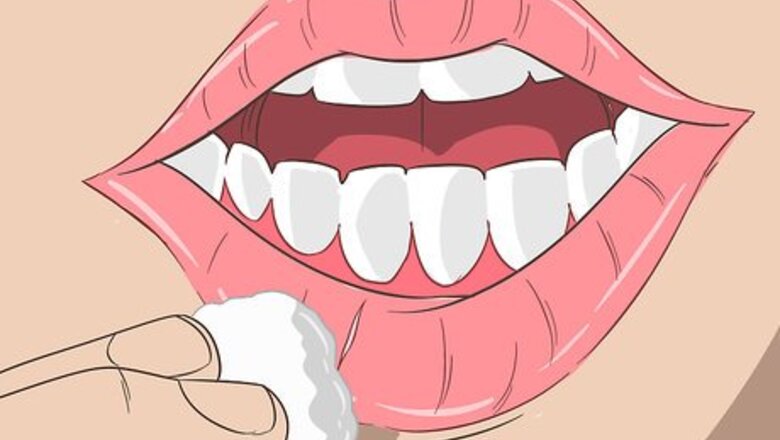
views
X
Trustworthy Source
DermNet NZ
Online clinical resource website written and run by dermatologists providing evidence-based information about dermatology and skin health
Go to source
Because it causes such sensitive and painful lips, exfoliative cheilitis can negatively impact the lives of those who have it, at times inhibiting the ability to eat or even talk without pain. While the exact cause of this condition is unknown, there are some things you can do to control its symptoms. This article discusses how to treat exfoliative cheilitis through proper lip and health care.
Assessing Your Condition
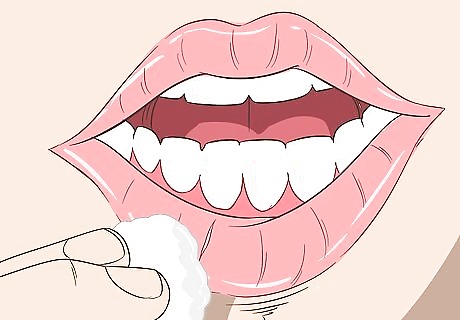
Recognize the symptoms. While some people experiencing extremely dry and chapped lips may assume they have this disease, exfoliative cheilitis is actually an extremely rare condition that few people actually suffer from. It is characterized by the following symptoms: Cracking, flaking, itching, and/or burning of the lips. Discoloration, especially around the vermillion border of the lips (in other words, the outside edge of your lips). Repeated peeling of a layer of excessive keratin that forms on the surface of the lips. Swelling of the lips.
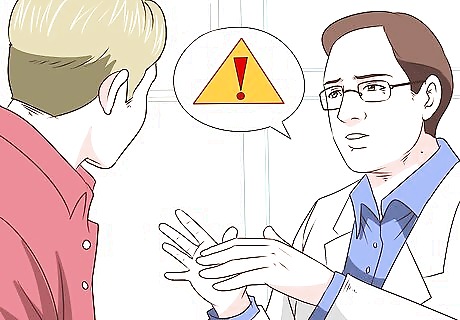
Understand the causes. The exact cause of the condition is unknown, but researchers have suggested that a variety of factors could cause it, including reaction to dental implants, hormone imbalances, diet imbalance, liver disorders, fungal or bacterial infections, improper diet, and poor mouth hygiene. It has been suggested that this form of cheilitis may develop from other, less severe, forms. Exfoliative cheilitis may also be caused by a fungal mouth infection called “Candida Yeast Overgrowth”, or Thrush.
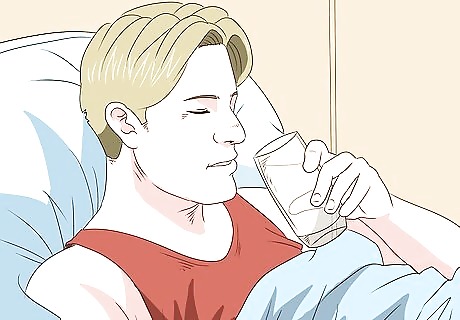
Ensure that you do not have Candida Yeast Overgrowth by testing your saliva. You can buy a pH tape testing kit or you can check for signs. The best time to do this test is first thing in the morning, before brushing your teeth or drinking anything. Start by collecting a mouthful of saliva and spit it into a clear glass filled with bottled or distilled water. After 15 minutes check back - normal saliva should just float on top. Any of the following are positive signs that you have Candida Yeast Overgrowth and you should contact your doctor for treatment: The saliva has formed strings that hang down into the water. There are cloudy globs that slowly sink or suspend below the surface.
Treating Exfoliative Cheilitis Yourself
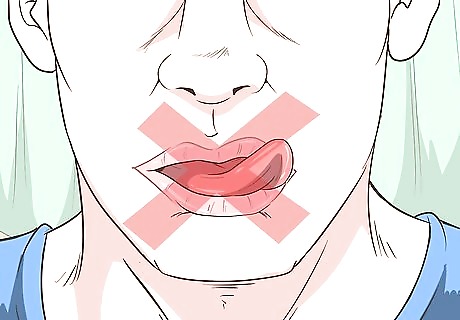
Avoid licking, picking, or touching your lips. Some health professionals believe that exfoliative cheilitis is actually caused by excessive licking of the lips, sometimes done unconsciously. Licking your lips to moisten them actually deposits saliva on the lips, which in turn dries them out further. It may take a lot of self control on your part, but the best way to heal your lips is to leave them alone and allow your natural body systems to heal them. Avoid over-exfoliating your lips, as well.

Apply remedies directly to your lips. Symptoms of exfoliative cheilitis may be temporarily alleviated by applying a balm or cream to your lips. However, it is important to use these with caution. Stop using the product and see your doctor if the pain worsens or the site becomes irritated. Some things you can try include: Natural lip balms Cold compresses with vinegar and water (for 30 minutes) Hydrocortisone cream Lactic acid lotion

Eat a healthy diet. It has been suggested that the condition can be diet induced, so it is important to reduce your intake of processed foods and preservatives. Eat organic fruits and vegetables whenever possible. Also wash your fruits and vegetables to make sure any irritants are off them. Take probiotics and digestive enzymes. While there is some debate as to whether or not over the counter enzymes actually help with digestion, many people have insisted that they assist digestion and aid in the absorption of key nutrients that are essential to overall health. Increase your intake of vitamin B, zinc, and iron. Add Omega 3 fatty acids to your diet, whether through a supplement or the foods you are eating. Omega 3 fatty acids are found in fish and in some green vegetables, such as spinach and kale. Drink plenty of water and avoid sugary drink and sodas. Steer clear of salty foods because these may irritate your lips further.
Seeking Professional Treatment
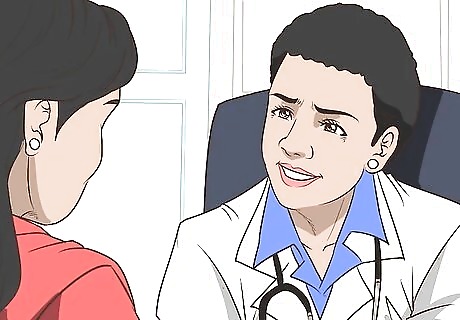
Consult your general practitioner if symptoms persist. Exfoliative cheilitis can be linked to serious medical issues, such as a vitamin deficiency, immunosuppression, or your body’s inability to efficiently process toxins. Therefore, if minimizing toxin exposure and maintaining a healthy diet do not reduce the symptoms, then it may be necessary to see a doctor to rule out other causes. Medical professionals have used a variety of medications to treat this condition. Remember that the cause of exfoliative cheilitis is unknown, so medical treatments may vary depending on the practitioner. One study found that the use of Topical Calendula officinalis ointment (10%) was very effective. Other treatments, such as topical steroids, antibiotics, keratolytic agents, sunscreen, and antifungals may have less of an effect. Make sure to discuss these options with your doctor. Your doctor may suggest using lip balms and other emollient products to help soothe your symptoms, but keep in mind that exfoliative cheilitis is resistant to emollients, so they may not provide much help.
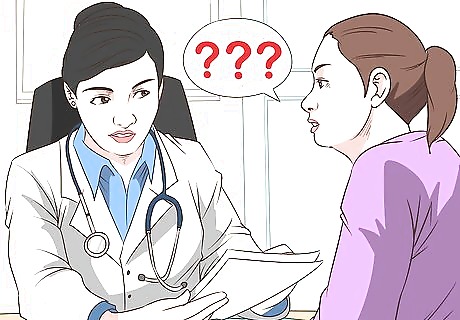
Visit a specialist, such as a dermatologist. Dermatologists should have the specialized knowledge to get your symptoms under control, as they have probably studied and dealt with more skin conditions than your general practitioner. If you are not having significant improvement under the guidance of one medical professional, consider contacting a different one.
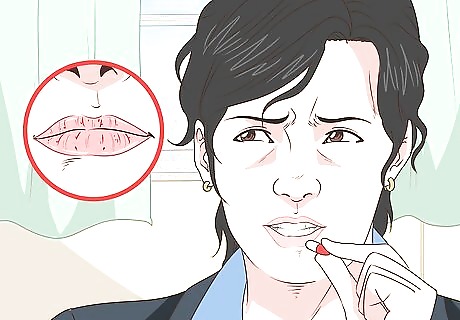
Consider turning to alternative medicine. Because the cause of exfoliative cheilitis is still unknown to western medicine, you may find some relief from your symptoms through alternative medicines, such as acupuncture or Chinese medicine. Always remember, however, to let all of your doctors know what types of treatments you are receiving, so that the treatments don't conflict with one another.
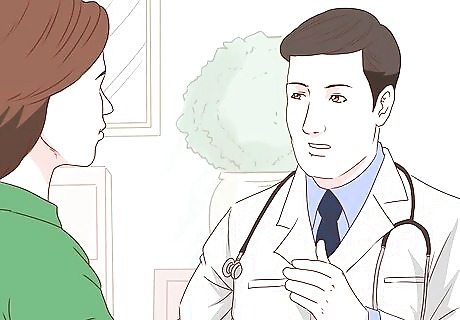
Look into speech therapy. Speech therapy may be helpful as a way to stop unconscious biting, licking, or sucking of your lips. Ask your doctor for a referral to a speech therapist if you have noticed that you do these things.
















Comments
0 comment